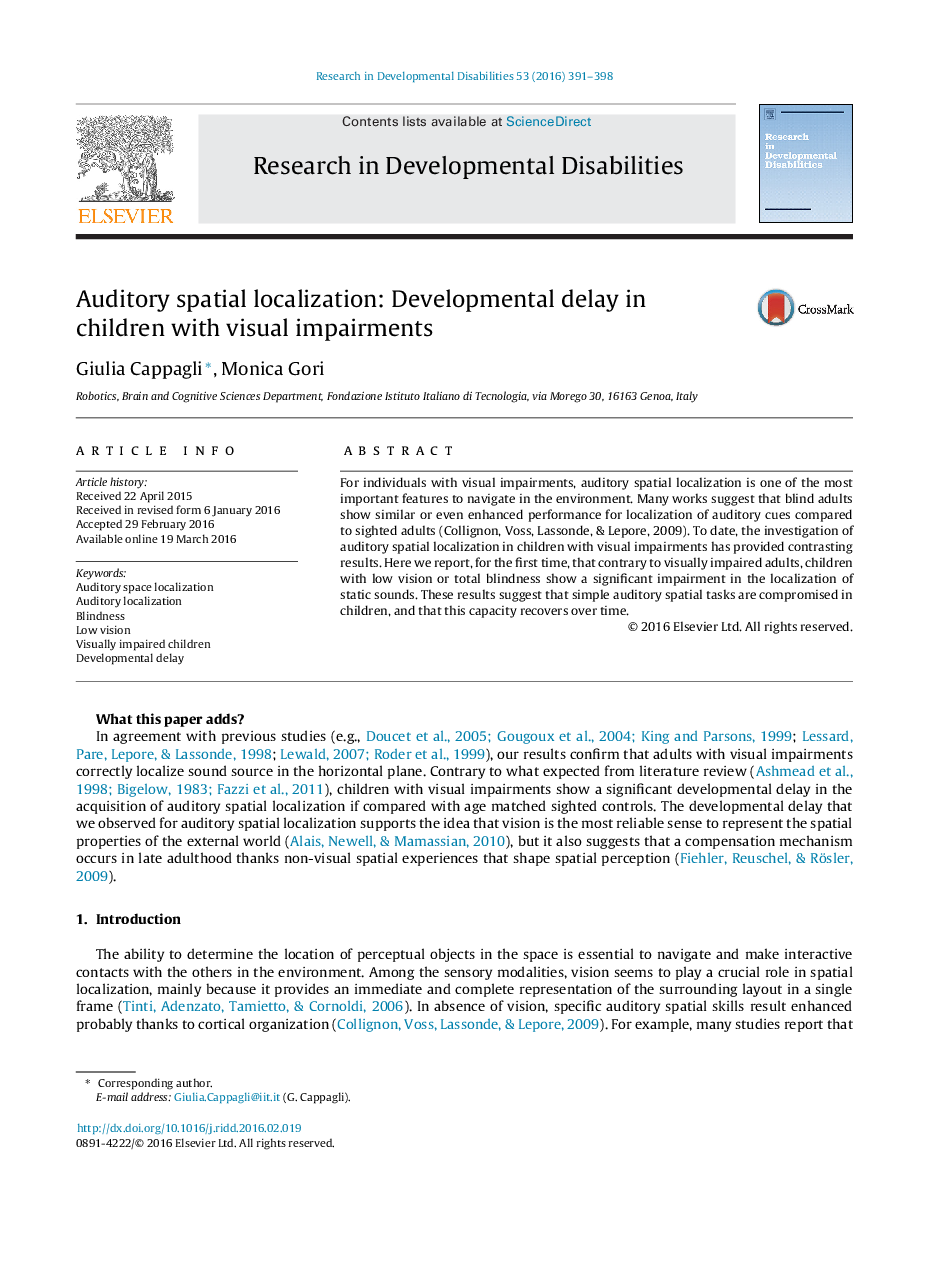| Article ID | Journal | Published Year | Pages | File Type |
|---|---|---|---|---|
| 370997 | Research in Developmental Disabilities | 2016 | 8 Pages |
•We found a strong developmental delay in children with visual impairments for the ability to localize sound sources.•Visually impaired children but not adults perform worse than sighted children.•The results support the idea that vision is important for the development of specific auditory spatial skills.
For individuals with visual impairments, auditory spatial localization is one of the most important features to navigate in the environment. Many works suggest that blind adults show similar or even enhanced performance for localization of auditory cues compared to sighted adults (Collignon, Voss, Lassonde, & Lepore, 2009). To date, the investigation of auditory spatial localization in children with visual impairments has provided contrasting results. Here we report, for the first time, that contrary to visually impaired adults, children with low vision or total blindness show a significant impairment in the localization of static sounds. These results suggest that simple auditory spatial tasks are compromised in children, and that this capacity recovers over time.
